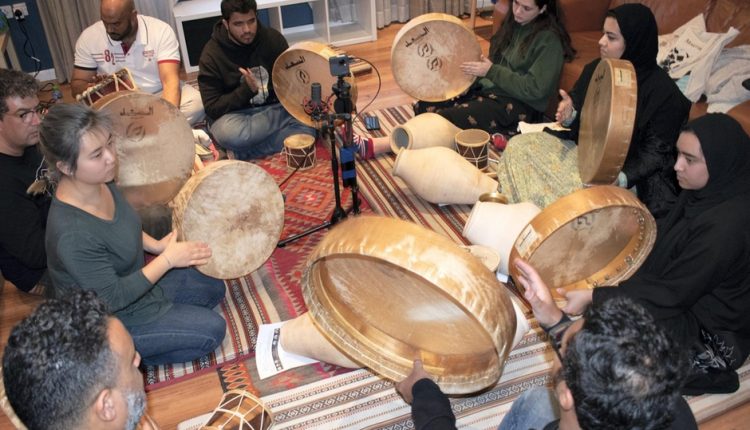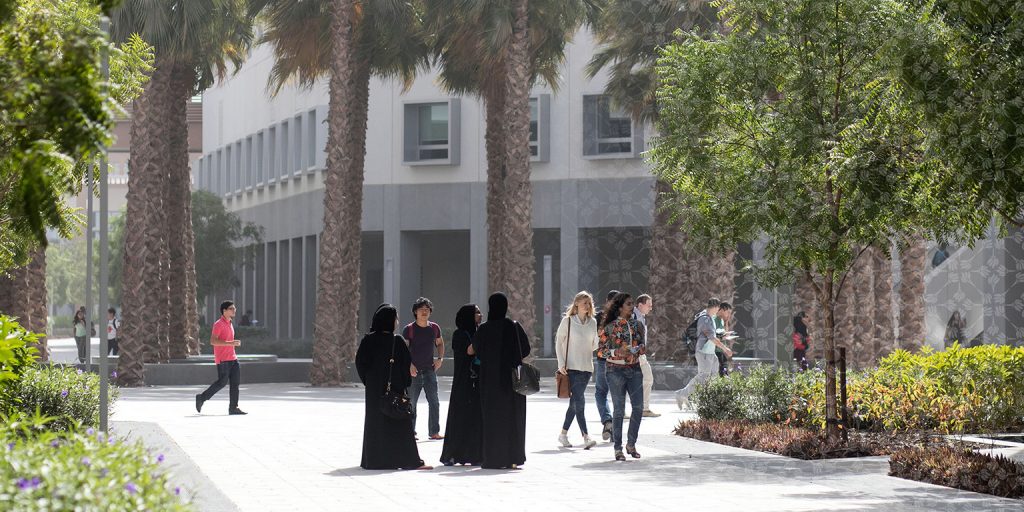New York University in Abu Dhabi (NYUAD) is offering students an educational experience diving into the region’s timeless music. The course, entitled ‘Engaging Khaleeji Musical Heritage’, is taught by Ghazi Al-Mulaifi, a professor of applied ethnomusicology in NYUAD, who comes from a family of rich Khaleeji musical heritage.
Prior to the discovery of oil, many of the people of the Arabian Gulf relied on pearl diving as a source of sustenance. Today, the course delves into the heritage of the pearl divers and their songs. Aboard a ship, there were songs for each task; the sailors would get together clap and sing ballads of love, sadness, and devotion.

“A lot of their songs expressed sadness,” Al-Mulaifi explained to The National. “They were inspired by the sorrow of being away from family or the death of a fellow diver during the trip. In a small way, the pearl divers’ songs are comparable to the blues.”
The class meets five times a week for three hours a day. The vibrant classroom is divided into two daily tasks: a percussion workshop and an interdisciplinary seminar.

Before modern pop music had its influence on the Khaleeji song, its heritage went back thousands of years. Before Islam came to the Arabian Peninsula, poetry had had its influence over the various bedouin and fishing communities of the region. Each tribe had its poet with a literary skill set that would distinguish their way of life. Poets would recite their works to the music of a rababa, singing of love, war, and sorrow. Because these songs depicted the day-to-day life of the ancient Arab, they were the lifeblood of that time.

“The music was born of trade,” Al Mulaifi, who comes from a family of pearl divers and merchants, says. “Influences were picked up along the trade routes of the Indian Ocean. We have African imprints, Indian imprints and Iraqi as well.”
Al-Multafi spent some time in Kuwait meeting with a number of Kuwaiti ensembles who still practice the tradition of singing pearl diving songs in the modern age. Some of his students got the chance to meet the caretakers of this tradition and are scheduled to perform with them at NYUAD next Thursday.
This course is important because it brings an endangered form of art to the spotlight creating the chance for a constructive dialogue about heritage, culture, and the future.



